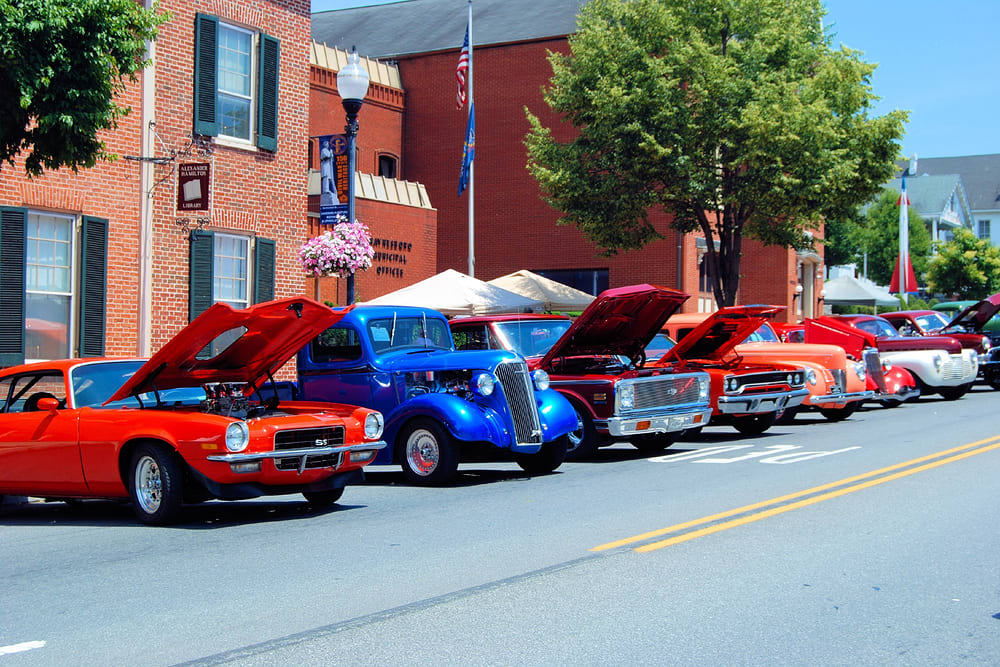

Does oil rather than blood pump through your veins? Do you want to drive a souped-up car from another decade, when cars were crafted with more care? You may have already considered buying a classic car or even started your restoration product, but there are some things a non-mechanic should be aware of first. If you're going to buy a car like this, you should know first to think of it as a hobby rather than an investment. Restoring a classic car may not be a profitable venture, but this labor of love is enjoyed by a huge community of enthusiasts.
Picking the Right Classic Car
Whether you're picking a rust bucket off of the side of the road for a few bucks or buying a hardly used, low-mileage, thousands-of-dollars beauty, there are going to be some things you need. For instance, you'll want to get your hands on the title and any paperwork the owner might have. While you're looking the papers over (which should include previous maintenance, parts purchases, and accident information), you should make sure the VIN number lines up with the history of the car. The VIN number can tell you the origin, year, manufacturing plant, and more, as long as the car was made in 1954 or later (VIN numbers weren't used before then). If it doesn't make sense with the car you're looking at, you'll know something's up. Of course, there are other factors to watch out for, like rust, for instance, which can become a huge, costly repair project. If you're crossing state or country borders to get your dream car, you'll have to consider the cost of shipping the car and any special rules that may apply. You'll also want to create a budget, have a mechanic you can trust, and develop a game plan for the restoration before you make the purchase. When creating a budget, remember often-forgotten costs like car insurance.
Understanding if You're Restoring or Customizing
Auto enthusiasts might argue over the difference between these two concepts until they're blue in the face, but what it boils down to is that the goal of restoring a car should be to fix it up in a way that it's as close as possible to how it looked the day it rolled off the lot. Customizing, on the other hand, may involve updating the vehicle. For instance, adding air conditioning, power steering, engine modifications, or new colors that are nothing like the originals offered are considered to be part of customization. Customization is fine, but it's important to know that it will often actually lower the value of the car. Know which of the two types of projects you're tackling before you start and you can save money in the long run. Is your goal to someday sell your vehicle, or do you want something that's simply fun to ride around in? Make sure your mechanic knows your goals, too.
Finding the Right Parts
Getting affordable parts for your classic car can be the most difficult aspect of car restoration, whether you're shopping for a 1980s Mustang or a 1930s Mercedes-Benz. Sometimes, you'll have to go straight to the manufacturer. Sometimes, you can sneak in a junk part or two. Sometimes, buyers purchase a second similar car just to use its parts. If you're restoring a classic car, you'll want to lean heavily on finding original equipment manufacturer (OEM) parts for almost everything except for wear-and-tear items. OEM parts are generally more expensive than the alternative, referred to as aftermarket parts. Online stores can often have cheaper OEM parts. Naturally, the make will often dictate the availability.
Knowing When to Hire Help
Someone with little experience in the classic car scene may face a quandary: they're not experts enough to do some of the more complicated repairs, like engine work or paint jobs, themselves, but they're nervous about hiring someone. The most important advice is to do your homework and plan out a budget. Know what you're capable of. Find a trustworthy mechanic who is familiar with restoration projects and recommended within the community. Then, give that professional a maximum budget and a budget that you're shooting for. They can give you better overall recommendations that way.
- 10 Cardinal Rules for Buying Classic Cars
- Rules When Importing a Classic Car Over the Border
- 32 Best Cars to Restore
- Five Tips for Restoring a Classic Car
- How to Restore a Classic Car on a Budget
- Rust Removal Guide
- Top Four Tips to Save Money on Your Classic Car Restoration
- Can Fixing Up a Classic Car Make it Worth Less? (video)
- Restoring Classic Cars Can Be Worthwhile
- Classic Car Restoration (video)
- Automotive Technician Jobs



